Inclusive Economies: A Multi-Dimensional Framework for Understanding, Measuring and Promoting Inclusive Economies
March 12-16, 2018
Meeting Purpose and Goals
Promoting inclusive economies has become an important theme in international policy discussions, but there remain major gaps in our understanding of the components and determinants of greater economic inclusion. Thus, the purpose of this meeting is to help contribute to the development of a multi-dimensional framework for understanding, measuring and promoting inclusive economies. Discussions will center on issues raised in the Creating More Inclusive Economies: Conceptual, Measurement and Process Dimensions report summarizing two years of detailed research and convenings with stakeholders designed to develop a robust method for measuring progress in five key dimensions: equity, growth, participation, stability and sustainability. This work has included developing national indicators as well as detailed sub-national analysis in three contexts (cities in Colombia, rural states in India, and metropolitan regions in South Africa) but will also incorporate detailed work on inclusive development in the United States. Participants will bring their own experiences and perspectives to bear in helping us all better answer the following questions: What do we mean by the term inclusive economy? How can we better measure an inclusive economy? How can we get a more inclusive economy?
Agenda
Download a copy of the agenda here.
March 12, 2018March 13, 2018March 14, 2018March 15, 2018March 16, 2018
Monday
1:00 – 2:00 pm Lunch (on-site)
6:00 – 7:00 pm Setting the Stage – Why We’re Here: after a welcome and introductions, we will review meeting goals and intended outcomes
7:00 pm Reception
7:30 pm Dinner at Bellagio Conference Center
Tuesday
9:00 – 10:30 am What is an inclusive economy? The meeting kicks off with a discussion about the Inclusive Economy concept and framing
Chris Benner and Manuel Pastor: Evolution of approach to inclusive economies and this project
Gordon McGranahan: Inclusive cities and inclusive economies
Emily Garr Pacetti: Evolution of thinking about inclusive economies in The Rockefeller Foundation
Veronica Olazabal: Measurement, evaluation and organizational performance in the Rockefeller Foundation
10:45 – 11:00 am Chris Benner: Measuring Inclusive Economies: Summary of methodology
11:00 – 5:00 pm (with lunch and breaks) Lessons learned from South Africa
Ivan Turok and Justin Visagie: Inclusive urban development in South Africa: What does it mean and how can it be measured?
Geci Karuri-Sebina: South African Cities Network
Andrew Boraine: Western Cape Economic Development Partnership
Wednesday
9:00 am – 12:30 pm (with breaks) Lessons learned from Colombia
Manuel Pastor and Gabriela Giusta: Post-conflict Colombia: Inclusive Economies and urban development
Juan Camilo Cardenas: Inclusion across Colombia
Vivian Argueta: Territories of inclusion and opportunity in Cali
Santiago Uribe: Resilience and inclusion in Medellin
2:00 – 5:00 pm (after lunch with breaks) Lessons learned from India
Chris Benner: Background on India case study
Bidisha Chaudhuri: Inclusive Economies and Rural Development in India: A Focus on Bihar and Rajasthan
Shashanka Bhide: Poverty reduction and economic growth
Ravi Srivastava: Rural development and inclusion
Thursday
9:00 am – 1:00 pm (with breaks) Lessons learned from the United States
Angela Glover-Blackwell: Economy, equity and organizing: PolicyLink’s experience.
Sarah Burd-Sharps: Measure of America
Emily Garr-Pacetti: Community Affairs and community development in the Federal Reserve System
2:00 – 4:30 pm (after lunch) Lake Como boat tour
4:30 – 6:00 pm Building more inclusive economies: Insights and Future Steps
Nancy MacPherson: Ideas for next steps in inclusion and international development
Friday
8:00 – 9:00 am Breakfast (optional)
AM Ground transportation to Milan airports for return flights
Organizers
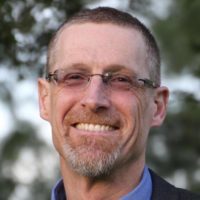
Chris Benner •
Bio
Dr. Chris Benner is the Dorothy E. Everett Chair in Global Information and Social Entrepreneurship, Director of the Everett Program for Technology and Social Change, and a Professor of Environmental Studies and Sociology at the University of California, Santa Cruz. His research examines the relationships between technological change, regional development, and the structure of economic opportunity, focusing on regional labor markets and the transformation of work and employment. He has authored or co-authored six books and more that 70 journal articles, chapters and research reports. His most significant books include: Equity, Growth and Community (2015), which examines diversity and dynamics of regional knowledge communities, and their relationship to social equity and economic growth; Just Growth (2012) which helps uncover the subtle and detailed processes, policies and institutional arrangements that help explain how certain regions around the country have been able to consistently link prosperity and inclusion; This Could Be The Start of Something Big (2009) which examines new regional movements around community development, policy initiatives, and social movement organizing; and Work in the New Economy (2002), an examination of the transformation of work and employment in the information economy. He received his Ph.D. in City and Regional Planning from the University of California, Berkeley.
Executive Director
The Everett Program
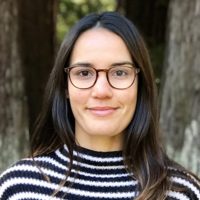
Gabriela Giusta •
Bio
Gabriela Giusta is a researcher at the Everett Program at the University of California, Santa Cruz. Her expertise stems from experience in quantitative and qualitative research, evaluation instruments and procedures, data collection and analysis, and reporting that provides valuable input on strategic directions and surfaces meaningful lessons. She has conducted research on sustainable development in the Global South and regional equity in the United States. She helped pioneer the work on Inclusive Economies, making significant contributions to the work in Colombia, India and the U.S. She has co-authored and contributed to several publications including: Inclusive Economy Indicators: Framework and Indicator Recommendations, Post-conflict Colombia: Inclusive Economies and Urban Development, Market Value: How Fair Assessment of California’s Commercial Property Values Would Likely Affect Land Use, Urban Development and the Economy, and Still Walking the Lifelong Tight Rope: Stabilizing Employment and Livelihoods in a Volatile Economy.
Before joining the Everett Program, Ms. Giusta worked for a forest conservancy in Peru exploring the interlinkages between conservation and poverty reduction strategies. She has served the wider global community through her volunteer work with Yazidis in Iraq, the Amah Mutsun native tribe in the U.S., and a journalist coalition in the UK. Ms. Giusta holds a master’s degree in development economics from the University of Göttingen in Germany and a bachelor’s degree in environmental economics from the University of California, Berkeley.
Research Specialist
The Everett Program
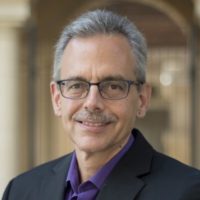
Manuel Pastor •
Bio
Dr. Manuel Pastor is Professor of Sociology and American Studies & Ethnicity at the University of Southern California. He currently directs the Program for Environmental and Regional Equity (PERE) at USC and USC’s Center for the Study of Immigrant Integration (CSII). Pastor holds an economics Ph.D. from the University of Massachusetts, Amherst, and is the inaugural holder of the Turpanjian Chair in Civil Society and Social Change at USC. His research has generally focused on issues of the economic, environmental and social conditions facing low-income urban communities – and the social movements seeking to change those realities. Some of his most recent publications include: Equity, Growth, and Community: What the Nation Can Learn from America’s Metro Areas, a book co-authored with Chris Benner (UC Press 2015); and Unsettled Americans: Metropolitan Context and Civic Leadership for Immigrant Integration, a book co-edited with John Mollenkopf (Cornell University Press 2016). His forthcoming book, State of Resistance: What California’s Dizzying Descent and Remarkable Resurgence Means for America’s Future, is to be released in April 2018. In January 2002, he was awarded a Civic Entrepreneur of the Year award from the California Center for Regional Leadership. He currently serves as a Public Member of the Strategic Growth Council in California, and has previously served as a member of the Commission on Regions appointed by California’s Speaker of the State Assembly, and as a member of the Regional Targets Advisory Committee for the California Air Resources Board. Pastor received the Liberty Hill Foundation’s Wally Marks Changemaker of the Year award for social justice research partnerships in 2012. In 2017, he received the Champion for Equity Award from the Advancement Project for his work with community-based organizations fighting for social change.
Executive Director
Program for Environmental and Regional Equity

Gordon McGranahan •
Bio
Dr. Gordon McGranahan is an economic development researcher whose current work focuses on inclusive urbanisation, the urban land nexus and environmental burdens in and around the home. He has been a fellow in the Cities Cluster at the Institute of Development Studies since 2016. During the 1990s McGranahan led the urban environment program at the Stockholm Environment Institute, conducting research on urban environmental risk transitions and environmental justice, including a multi-city study of household environmental burdens in Accra, Jakarta and Sao Paulo. Between 2000 and 2016, he worked at the International Institute for Environment and Development (IIED), heading up the Human Settlements Programme and then Group for a decade, and more recently leading its work on urbanization. His most cited work during this period was on urban risk transitions, the climate-related risks of human settlement in coastal zones, and water privatization. He has held numerous international advisory positions, and was convening lead author of the urban systems chapter of the Millennium Ecosystem Assessment. Publications since 2016 include articles in World Development, Habitat International, Environment and Development and Climate and Development. McGranahan holds a development economics Ph.D. from the University of Wisconsin-Madison.
Research Fellow
Institute for Development Studies
Participants
From Colombia
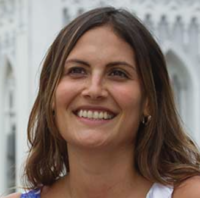
Vivian Argueta •
Bio
Ms. Argueta is an urban development and social planning specialist with an M.A. in Public Policy from Tsinghua University and undergraduate studies from Harvard and Landegg Interntional University. She has 10 years of experience driving urban development in Asia, Europe, Latin America and the Middle East. Having consulted for the IDB, the WB, the UN and other development agencies, her focus has been on the preparation, management and implementation of infrastructure projects, accompanied by comprehensive social programs to assist the integral development and resilience of vulnerable communities. She has experience in the transport, water and sanitation, housing, health, education, income generation and urban development sectors, and poverty reduction strategies. As of 2014, Ms. Argueta has been working for the Municipality of Cali under Mayor Rodrigo Guerrero and currently under Mayor Maurice Armitage as Chief Resilience Officer.
Chief Resilience Officer
100 Resilient Cities Cali

Santiago Uribe •
Bio
Oscar Santiago Uribe Rocha is the Chief Resilience Officer (CRO) for the City of Medellín. Prior to becoming CRO, Mr. Uribe Rocha worked for three years as Executive Director of Social Innovation at Pigmalion. There he coordinated a number of research programs on topics ranging from disaster risk management to local youth’s reproductive and mental health, and served as the Speaker for residents affected by the collapse of the residential complex called Space. From 2007-2010, he served as Administrative Assistant of Cultural and Economic Affairs at the Embassy of Colombia in South Africa, where he coordinated official visits to exchange experiences and expertise for the implementation of the Bus Rapid Transit Systems in South Africa. He also has extensive experience in food security, nutrition education, and children’s affairs.
Mr. Uribe Rocha received his Bachelor’s Degree in Anthropology from the Universidad de Antioquia and was a visiting scholar at the University of the Witwatersrand in Johannesburg.
Chief Resilience Officer
100 Resilient Cities Medellín
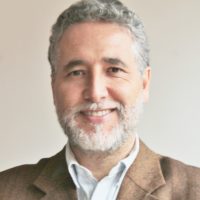
Juan Camilo Cardenas •
BioJuan Camilo Cárdenas is an Associate Professor in the Department of Economics at the Universidad de los Andes in Bogotá, Colombia. Considered a leading scholar in experimental economics in Latin America, his research focuses on how people cooperate to solve problems of collective action, a fundamental issue in political science and economics. He is part of a cross-national research agenda that studies how different cultures behave in similar experimental circumstances. Professor Cárdenas received a PhD degree in environmental and resource economics from the University of Massachusetts, Amherst and did post-doctoral research at Indiana University, Bloomington. He is the recipient of numerous awards including the Premio Bienal al Investigador Javeriano from the Javeriana University, the Santa Fe Institute International Fellowship Competition, and the Research Medal Award at the Global Development Network. He has also received research grants from the John D. and Catherine T. MacArthur Foundation, and has been a Fulbright Scholar. At Harvard, his research focused on human behavior and institutions of cooperation and pro-sociality. He taught a junior seminar, Collective Action, Sustainability and Development in Latin America, in the Government Department during the fall of 2008 and gave a public lecture entitled Sustainability as Cooperation, Fieldwork as Lab: How Behavior, Institutions and Ecosystems Interact.
Dean and Associate Professor of Economics
Universidad de los Andes
From India

Ravi Srivastava •
Bio
Present Position: Professor of Economics, Centre for the Study of Regional Development, Jawaharlal Nehru University, New Delhi.
Education: Allahabad University (BA), the Delhi School of Economics (MA), Jawaharlal Nehru University (Pre PhD), University of Cambridge, UK (Ph. D.)
Membership of NCEUS: Full-time Member of the National Commission for Enterprises in the Unorganised Sector (NCEUS), chaired by late Dr. Arjun Sengupta, in the rank of Secretary, Government of India (2006-09). The advisory Commission to the Government of India, which wound up in May 2009, submitted a dozen reports and made wide ranging recommendations to government on all aspects of policy related to informal sector enterprises and the informal workforce. Its recommendations led to the enactment of the Unorganised Workers Social Security Act 2008, and the launch of the Rashtriya Swasthya Bima Yojana, a public funded health insurance scheme for the poor, to which currently more than 35 million poor families are subscribers, and more recently, of MUDRA bank, a bank for the unorganised sector.
Research and Publications: Main areas of research and publication include agriculture, rural development and rural poverty, the informal sector, regional development, decentralization, human development, land reforms, social protection, labour and employment, and migration. Published five books, four monographs, more than one hundred papers in national and international journals and thirty-five research reports. Carried out more than twenty-five major research projects sponsored by agencies such as UNICEF, ILO, The World Bank, ESRC (UK), University Grants Commission, Indian Council for Social Science Research, Shastri Indo-Canadian Foundation and others. Has been involved with extensive research on Uttar Pradesh over several decades. He was the principal author of the first Human Development Report of Uttar Pradesh and one of the authors of the World Bank’s report on poverty in Uttar Pradesh. His book (with G. K. Lieten) on decentralisation and development in UP (“Unequal Partners”, Sage Publications, New Delhi, 1999) has been widely acclaimed. He has co-authored a book (“Uncaging the Tiger: Costs and Financing of Elementary Education in India”, Oxford University Press, New Delhi) on access and financing of Elementary Education in UP and India. He has also written on agrarian structure, child labour, health and education, decentralization, food security, social inclusion, and social protection programmes in the State.
Professor of Economics
Centre for the Study of Regional Development, Jawaharlal Nehru University
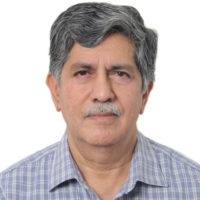
Shashanka Bhide •
Bio
Dr. Shashanka Bhide is currently Director, Madras Institute of Development Studies, Chennai. He was earlier a researcher at the National Council of Applied Economic Research (NCAER) in New Delhi from 1982 to 2014 in different positions. On leave from NCAER, he was the RBI Chair at the Institute for Social and Economic Change, Bangalore for one year, and on a visiting research position at the Australia South Asia Research Centre at the Australian National University for about two years. He has published in academic journals, books and popular media. His research work has been in agricultural economics, macroeconomic modelling, poverty dynamics and issues relating to infrastructure development. He received his Ph. D in agricultural economics from Iowa State University.
Executive Director
Madras Institute of Development Studies

Bidisha Chaudhuri •
Bio Bidisha Chaudhuri is an Assistant Professor at the International Institute of Information Technology Bangalore (IIITB).She has completed her PhD from the South Asia Institute at the Heidelberg University, Germany. She has published two books titled E-governance in India: Interlocking politics, technology and culture (Routledge 2014) and Politics of the Other in India and China: Western Concepts in NonWestern Contexts (Co-edited, Routledge 2016). She is currently engaged in a variety of research projects that focus on information, learning and development, political economy of digital IDs and measuring economic inclusivity in India. Her research interest includes e-Governance, Public Policy reform, Gender and Development, South Asian politics, Information Communication Technology (ICT) for Development. She teaches undergraduate and graduate courses on social theories and relationship between technology and society.
Assistant Professor
International Institute of Information Technology Bangalore
From South Africa

Geci Karuri-Sebina •
Bio
Associate, South African Cities Network
Visiting Research Fellow, Wits School of Governance
Research Associate, Institute for Economic Research on Innovation
Dr Karuri-Sebina is an African urban dweller and lifelong learner.
Professionally, she was most recently the Executive Manager: Programmes at South African Cities Network, a peer-based thinktank established by South Africa’s largest cities to focus on improving urban development and governance. She previously worked with National Treasury, the Council for Scientific and Industrial Research – CSIR, the Human Sciences Research Council – HSRC, and the University of California Los Angeles (UCLA) Advanced Policy Institute. Her interests span a range of development foresight, policy, planning and practice topics, particularly relating to urban governance, the built environment and innovation systems. She has over two decades’ experience working and publishing in these fields, including co-editing the Innovation Africa book series (Emerald Books 2016, 2019).
Geci is a Council Member on the South African Council of Planners, a Visiting Research Fellow at the University of Witwatersrand School of Governance, and an Research Associate of the Institute for Economic Research on Innovation (IERI) and the National Research Foundation’s South African Research Chair on Innovation and Development. She is also a founding director of the Southern African Node of the Millennium Project, co-founder of ForesightForDevelopment.org Africa, an Associate Editor for the African Journal for Science, Technology, Innovation and Development (Taylor & Francis), and Africa Regional Editor for Foresight: The journal of future studies, strategic thinking and policy (Emerald). Geci is also on the Advisory Board of the global Lifeboat Foundation, and a curator with the Emergence Network.
Geci holds Master’s degrees in Urban Planning, and in Architecture & Urban Design, both from UCLA, and a PhD from the University of Witwatersrand (planning and innovation systems). She is also a Fellow of the Archbishop Tutu Leadership Programme (of the Africa Leadership Institute and University of Oxford) and an alumnus of the Urban Innovation Leadership Lab (of the Global Leadership Academy).
She lives in Johannesburg with her partner, children, books, and a constant flow of friends and relatives.
Executive Director of Programmes
South African Cities Network

Justin Visagie •
Bio
Dr Justin Visagie is a research specialist at the Human Sciences Research Council with a focus on urban economics, development economics and applied microeconomic research. He was previously Director of Economic Planning, Policy and Research in the Department of Economic Development, Environmental Affairs and Tourism in the Eastern Cape. He completed his PhD at the University of KwaZulu-Natal where he won the prestigious Founders’ medal from the Economic Society of South Africa for his thesis on the development of the middle class in South Africa. Dr Visagie has expertise in microeconomic data analysis and has worked on a wide-array of cross-sectional and longitudinal household datasets. His recent research projects cover issues of regional industrial development, spatial inequality and inclusion, social mobility, urbanisation and migration.
Research Specialist
Human Sciences Research Council
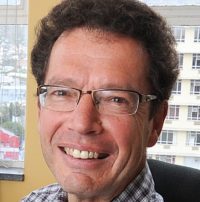
Ivan Turok •
Bio
Ivan Turok is Executive Director at the Human Sciences Research Council in South Africa and responsible for the Economic Performance and Development programme. He is Editor-in- Chief of the international journal ‘Regional Studies’, Editor of the journal ‘Area Development and Policy’, and Honorary Professor at the University of Glasgow. He is also Chairman of the City Planning Commission for Durban. Ivan is an urban and regional economist/planner with over 30 years’ experience of research, teaching and policy advice. He is a regular adviser to the United Nations, OECD, African Development Bank, UNECA and several national governments. He was a member of the Expert Panel set up by the SA Government to prepare the Integrated Urban Development Framework. He is the author of over 150 academic publications, journal articles, book chapters and books, many of which are highly cited internationally. His research covers various aspects of city and regional development, labour markets, urban resilience, green economy, urbanisation, urban transformation, affordable housing and national urban policies. His latest jointly-edited book is called Transitions in Regional Economic Development (2018, Routledge).
Executive Director
Human Sciences Research Council
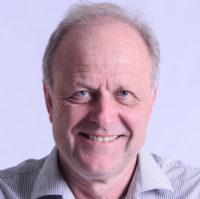
Andrew Boraine •
Bio
Andrew Boraine has been involved in South Africa’s local government, urban and economic development and transition processes for the past 40 years, as student leader, activist, advisor, negotiator, government planner, city manager, chief executive, facilitator, partnership and partnering specialist, systems change practitioner, designer, communicator and writer.Andrew is CEO of the Western Cape Economic Development Partnership (EDP), which facilitates issue-based and area-based partnering solutions, and knowledge-sharing and learning, aimed at strengthening the city and regional socio-economic development system (see below). Previously, for ten years, Andrew was Chief Executive of the Cape Town Partnership (CTP), a cross-sector partnership established in 1999 to coordinate the regeneration of the Cape Town Central City. He was part of leading Cape Town’s successful bid for World Design Capital 2014. In 2002, Andrew conceptualised and coordinated the establishment of the South African Cities Network (SACN), a network of the major metropolitan regions in South Africa. He chaired the SACN Board for five years. Prior to this, he was City Manager of the City of Cape Town (1997-2001) and Deputy Director General in the national Department of Constitutional Development (1995-1997), where he helped to draft the local government chapter of the South African Constitution. Andrew is an Adjunct Professor with the African Centre for Cities (ACC) at the University of Cape Town (UCT). The ACC operates as an interdisciplinary research and teaching programme around the dynamics of urbanisation in Africa and the global South. Andrew currently teaches on the subject of Partnering for Systems Change in a number of Masters programmes and is a member of the UCT Faculty of Engineering and Built Environment Advisory Board. Andrew served on the Board of the Development Bank of Southern Africa (DBSA) for nine years, where he chaired the Infrastructure Delivery and Knowledge Management Committee. He chaired the Board of the Cape Town International Convention Centre (CTICC) for seven years, and is a Nonresident Senior Fellow with the Brookings Institution Metropolitan Policy Program in Washington. Andrew was awarded a Practitioner Residency at the Rockefeller Foundation Bellagio Centre in Italy in March-April 2017 to research and write about the role of partnering and partnerships in steering and managing complex societal transitions, particularly in relationship to cities and urban development. He is married with two children and lives in Cape Town. Further biographical details: http://en.wikipedia.org/wiki/Andrew_Boraine
CEO
Western Cape Economic Dev Partnership
From United States
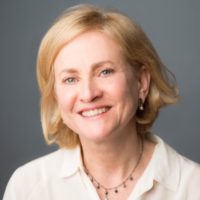
Sarah Burd-Sharps •
Bio
Sarah Burd-Sharps is Co-Director of Measure of America of the Social Science Research Council. Sarah’s work is focused on broadening the discussion about societal well-being beyond today’s overreliance on financial and economic metrics to often overlooked metrics of health, education, economic security, and others. Sarah is co-author of two volumes of The Measure of America (Columbia University Press, 2008 and NYU Press, 2010) and state and local well-being reports for California, Louisiana, Mississippi, and Los Angeles, Marin, and Sonoma Counties. Measure of America also created the Opportunity Index. Prior to this position, Sarah worked for the United Nations for over two decades, with a focus on economic empowerment, democratic governance, and gender equity. Before she left the UN in 2007 to found Measure of America, she was Deputy Director of the UN Development Program’s Human Development Report Office. She received a Masters degree in International Affairs from Columbia University.
Measure of America of the Social Science Research Council provides easy-to- use yet methodologically sound tools for understanding well-being and opportunity in America and stimulates fact-based dialogue about issues we all care about. Through hard copy and online reports, custom- built dashboards, and evidence-based research and analysis, Measure of America works with partners to breathe life into numbers, using data to identify areas of need, pinpoint levers for change, and track progress over time.
Co-Director
Measure of America
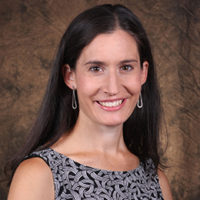
Emily Garr Pacetti •
BioEmily Garr Pacetti is a vice president and community affairs officer in the Community Development Department at the Federal Reserve Bank of Cleveland. She oversees the department’s research, policy analysis, and community outreach and additional community development initiatives throughout the Cleveland Fed’s Fourth Federal Reserve District. Ms. Pacetti joined the Bank in July 2017.
Prior to her current position, Ms. Pacetti was associate director at The Rockefeller Foundation, for which she developed and managed initiatives designed to support more equitable long–term economic development in the United States. Prior to joining The Rockefeller Foundation, she was director of research and evaluation at the Cleveland–based Fund for Our Economic Future, a philanthropic collaborative dedicated to making the Northeast Ohio region economically competitive and inclusive. She has also worked for the Metropolitan Policy Program at Brookings and the Economic Policy Institute, both in Washington DC.
Ms. Pacetti holds a bachelor’s degree in political communications from Emerson College, a master’s degree in urban studies from El Colegio de México, and a master’s in public administration from the John F. Kennedy School of Government at Harvard University. She has also held a Fulbright Fellowship.
VP and Community Affairs Officer
The Federal Reserve Bank of Cleveland
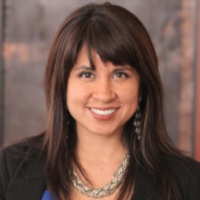
Veronica Olazabal •
BioVeronica Olazabal, Director of Measurement, Evaluation and Organizational Performance at The Rockefeller Foundation is an award-winning impact measurement and management expert with a professional portfolio ranging 15 years and four continents (Africa, Asia, North and South America). Previously, she led social impact measurement and evaluation at the MasterCard Foundation, social venture Nuru International and non-profits the United Methodist Committee on Relief (UMCOR) and the Food Bank for New York City.
Ms. Olazabal serves on the American Evaluation Association’s (AEA) Board of Directors and is founder of AEA’s Social Impact Measurement (SIM) Group. She also currently serves as an Advisor on Impact Measurement and Management to the Global Impact Investors Network, Bridges Fund Management, and the World Economic Forum’s Design Team.
Interested in the role of data, technology and feedback in driving impact in emerging markets, she has also co-chaired InterAction’s (the largest U.S. network of international NGOs) Working Group for Evaluation and Program Effectiveness and represented civil society for the United Nation’s discussions on development effectiveness. She is a frequent contributor to ICT Works and AEA365 with recent publications including Situating the Next Generation of Impact Measurement and Evaluation for Impact Investing published by The Rockefeller Foundation and The role of new information and communication technologies in equity-focused evaluation published in Evaluation.
Director of Measurement, Evaluation and Organizational Performance
Rockefeller Foundation
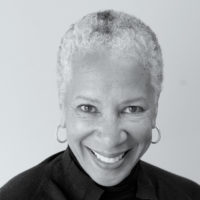
Angela Glover Blackwell •
BioAngela Glover Blackwell, CEO, started PolicyLink in 1999 and continues to drive its mission of advancing racial and economic equity. Under Angela’s leadership, PolicyLink has gained national prominence in the movement to use public policy to improve access and opportunity for all low-income people and communities of color, particularly in the areas of health, housing, transportation, and infrastructure. Angela was previously a Senior VP at the Rockefeller Foundation, the founder of the Oakland-based Urban Strategies Council, and a partner at the public interest law firm Public Advocates. Angela serves on numerous boards, including the Children’s Defense Fund, the W. Haywood Burns Institute, and FSG. She also advises the Board of Governors of the Federal Reserve as one of 15 members of its Community Advisory Council. Angela earned a bachelor’s degree from Howard University, and a law degree from the University of California, Berkeley.
CEO
PolicyLink
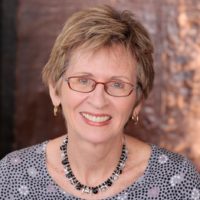
Nancy MacPherson •
BioNancy MacPherson is the former Managing Director for Evaluation at the Rockefeller Foundation where, for 9 years, she was responsible for setting up and managing the Foundation’s evaluation system. Prior to her work in philanthropy, she worked in Canada, Asia, Africa and Switzerland for 25 years in international development with indigenous peoples, not-for-profit organizations, and government and UN agencies. She set up and managed IUCN’s Program Evaluation System, served as Special Advisor to the IUCN Director General on Performance Assessment, and played a key role in the establishment and nurturing of a number of global and regional development evaluation professional associations, and networks, notably, the International Development Evaluation Association (IDEAS) and the African Evaluation Association (AfrEA). Nancy was a member of the teaching faculty at the World Bank’s summer International Program for Development Evaluation Training (IPDET) from 2001-2011. She is the recipient of the 2015 American Evaluation Association’s (AEA) Enhancing the Public Good Award, presented to an individual whose evaluation work has substantially contributed to the public good. Nancy is currently applying her passion and commitment to issues of equity, inclusion and resilience with organizations in the global south such as Slum Dwellers International (SDI), the Africa Evaluation Association (AfrEA), and the Resilience Measurement, Evidence and Learning Community of Practice (MEL COP).
Independent International Development Consultant
Resources
Location
The conference will be held at the Rockefeller Foundation’s Bellagio Center in Bellagio, Italy



















